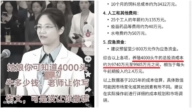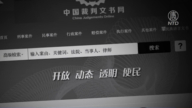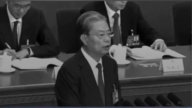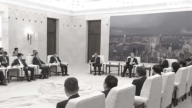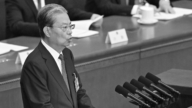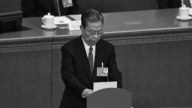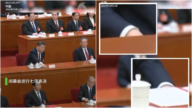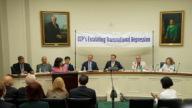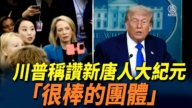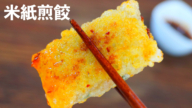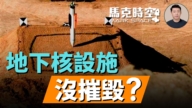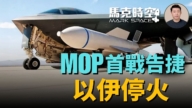【新唐人2014年03月07日讯】北京当局正在召开的“两会”上,由政府工作报告披露,2014年中国的国防开支将增加12%以上,首次突破8千亿元。消息一出,立刻引起国际社会的关注。为什么在没有战争的情况下,国防开支连续多年持续增加?让我们一起来看看专家如何解读。
中共国务院总理李克强,日前在“两会”的政府工作报告中说,2014年中国的国防开支将增加12.2%,升到8082.3亿元。
据了解,2011年,中共军费预算增长12.7%,2012年增长11.2%,2013年增长10.7%,至此已连续4年保持两位数增长。官方声称,军费将向武装现代化倾斜。
香港《开放》杂志编辑蔡咏梅:“中共实际上一直是有军国主义的倾向的。‘中国崛起’就是已经隐隐约约含有军国主义的倾向。尤其近几年,军方少壮派军人就公开叫嚣‘打核弹’、‘轰炸东京’等等。只要这个体制不变,他们一定会加大军费的一部分,对其他国家是有威胁的。”
中共当局宣布军费持续增加后,日本内阁官房长官菅义伟(Yoshihide Suga)表示,中共的国防政策和军力缺乏透明度,令日本和国际社会感到担忧。
美国国防部主管东亚事务的副助理部长大卫•海尔韦伊,日前也表示,美国关切中方缺乏的透明度,尤其是中共不断增加军事部署、对海上和领土主权问题采取强硬姿态。
大陆官方媒体报导,新增的军费主要用于四个方面:一是,推动军队的科学发展,增加高新武器装备;二是,推进后勤基础设施建设﹔三为缓解物价上涨影响;四是推动反恐维稳等。
而中共驻香港的军队大约有6千人,包括陆军、海军和空军,在1997年7月1号进驻香港。
蔡咏梅:“我们不相信:任何一个地方会对香港进行侵犯,那么你驻军队在这边是什么意思呢?现在中国的政治结构还是极权社会,那么它的军队也是专政暴力机器的一部分。中国的国家机器这时候也有对内的一面。”
另外,从2012年开始,中共在东海、南海和多个周边国家的关系越趋紧张。有猜测指出,这也是军费不断增加的原因之一。
旅美时事评论员蓝述:“这不是最主要的。最根本的问题就是官民矛盾已经水火不容了,中共的统治越来越不稳了。在这种情况下,钓鱼岛这件事情上他它宁可不要石油,宁愿将这个钓鱼岛作为一个支点,挑动国内的民主主义情绪。”
旅美时事评论员蓝述认为,东海钓鱼岛是一个典型的例子,北京在转移民众对国内矛盾的注意力之余,还要在军费上加大投入,摆出战争姿态。另一方面,他认为,军费递增与中共的内斗加剧有关。
蓝述:“中共高层各个集团分赃越来越难以平衡,需要控制军队,所以大家都愿意给军队增加军费,讨好军队。他控制了军队以后他才能控制最高权力。从去年到今年的增长速度比较快?说明第五代上台以后,中共内部的派系斗争大大的加强了。”
据公开数据显示,自1988年军队恢复军衔制以来,中央军委共授予96位高级军官上将军衔、和警衔。其中中共前领导人邓小平授予了17位高级军官上将军衔,上届领导人江泽民从1993年到2004年送出了上将军衔、警衔79个,胡锦涛授予了10位将军上将军衔。
美国《华尔街日报》报导,国际战略研究所(International Institute for Strategic Studies)所长约翰•奇普曼(John Chipman)曾表示,在这个充满互相冲突的领土主张,以及长期存在潜在冲突热点的地区,中共的军费支出导致军事采购不断升温。德国媒体也认为,中国大幅度增加军费,将刺激亚洲的军备竞赛。
采访编辑/唐音 后制/周天
In the Beijing parliamentary meetings, the Chinese Communist
Party (CCP) reported its 2014 defense budget.
The budget was raised more than 12% to over 800 billion yuan.
This announcement quickly drew world concerns.
Why does the CCP increase its defense spending
year after year during peace time?
The following is our experts’analysis.
The CCP head Li Keqiang said in the annual parliamentary
meetings that Chinese military spending will increase by 12.2%
to 808.23 billion yuan ($131.57 billion).
The CCP has continuously increased its national defense spend
by 12.7% in 2011, 11.2% in 2012, and 10.7% in 2013.
They claim the increased budget will facilitate the development
of more high-tech weapons.
Cai Yongmei, Hong Kong’s Open Magazine editor: “The CCP
actually has a background of militarism.
The “Chinese Century” implied militarism, especially the
military Young Turks public clamor in recent years about
‘nuclear war’, ‘bomb Tokyo’, and so on.
As long as the CCP remains, the defense budget will continue
to increase and threaten the international communities."
In responding to China’s military budget raise, Japanese Chief
Cabinet Secretary Yoshihide Suga said China’s lack of
transparency is becoming an issue;
Not only for Tokyo, but also for the rest of the international
community, reported VOA.
Deputy Assistant Secretary of Defense (East Asia) at the United
States Department of Defense David Helvey commented:
“We remain concerned about a lack of transparency regarding
China’s growing military and its increasingly assertive behavior
in the maritime domain," which was reported by Reuters.
The CCP state media reported the missions of the newly
increased budget:
To develop high-tech weapons;
To upgrade the logistics infrastructure;
To alleviate the impact of inflations;
To facilitate anti-terrorism and maintenance of stability.
In Hong Kong, there are Army, Navy and Air Force staff
stationed since July 1, 1997, and about 6,000 PLA troops.
Cai Yongmei: “We do not believe any attack will happen to
Hong Kong.
So why is the military stationed there?
The CCP, is a totalitarian dictatorship, the military is
certainly part of the dictatorship machinery.
This state machinery also targets the domestic environment."
The increasing military spending is also believed to partly in
response to the recent tense relations of China with neighboring
countries over issues of the East China Sea and South China Sea.
Lan Su, commentator: “I don’t think that’s a major issue.
I believe the fundamental problem is that conflict between the
party and the people has been so intense that it shakes the ruling
grip of the CCP.
The Diaoyu Island issue is not about the oil.
The CCP does not even care about it, but manipulates the issue of
the islands to provoke Chinese domestic democratic sentiment."
Commentator Lan Su takes the Diaoyu Islands in the East China
Sea as a typical example.
It helped the CCP to divert domestic conflict, serving as an
incentive to increase the budget in the name of preparing for war.
He also believes the budget increase reflects the intensified
infighting within the CCP.
Lan Su: “The spoils system within the CCP is getting more
difficult to balance among factions.
To control and please the army, everyone is in favor of increasing
the military spending.
Controlling the army means controlling the leadership.
The further budget increase from last year actually tells us the
factional struggle within the CCP since the 5th generation of
leadership took the power has gone up."
Since the regime re-established its military ranking system in
1988, the Central Military Commission has created 96 high-
ranking officers and generals.
Included are 17 by former CCP leader Deng Xiaoping,
79 by former leader Jiang Zemin between 1993 and 2004,
and 10 by former leader Hu Jintao.
In a press release by London-based International Institute for
Strategic Studies (IISS) on February 5, John Chipman, director-
general of IISS, stated:
“These outlays are fueling heightened military procurement in a
region replete with conflicting territorial claims as well as
long-standing potential flashpoints."
German media have also expressed similar concerns over the
elevated military procurement in Asia and China’s increasing
military spending.


